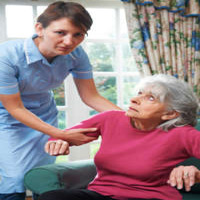Live 24/7 Call Answering: 609-881-1400

In addition to neglect, the most frequently recognized types of nursing home abuse are physical, emotional, sexual, and financial abuse. Examples of physical or sexual abuse include assault, battery, and rape. Nursing home residents who are being emotionally abused or neglected may be subject to restraint or seclusion, deprivation of food or water, and lack of care for their medical conditions. Elderly nursing home residents are particularly vulnerable to financial exploitation and may fall victim to financial abuse when a caregiver asserts control over their finances. Those working in the healthcare industry are in a unique position to commit healthcare fraud at the expense of nursing home residents.
Federal regulations state that long-term care facilities must provide residents with comprehensive care, including providing residents with assistance for daily living activities; ensure that residents receive appropriate treatment; and promote residents’ quality of life. There are over 350 nursing homes in New Jersey, all of which must comply with this federal law as well as state and local nursing home laws. New Jersey has strict state laws that must be adhered for long-term care facilities to remain in business. If nursing home abuse is suspected for abuse or neglect of its residents, it may be prudent to tell the police and consult an experienced lawyer. Adult Protective Services may also be able to assist in investigating and evaluating the situation.
If you believe that your loved one has been the victim of nursing home abuse or neglect, contact a New Jersey nursing home abuse lawyer at Davis & Brusca, LLC. Long-term care facilities owe a duty of care to residents; nursing home abuse is an egregious breach of that duty and we believe that those responsible should be held accountable. Our offices are located in Princeton and Trenton, New Jersey and we represent victims throughout the state. Contact us online or call us at 609-786-2540 for a confidential consultation.